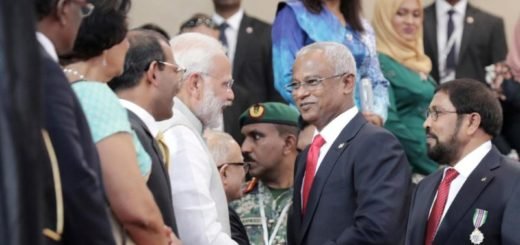Suresh Prabhu’s meetings fail to resolve India-US trade disputes
Union Commerce Minister Suresh Prabhu’s meetings with United States Ministers and industry leaders did not resolve lingering disputes between the two countries on multiple trade issues. A delegation of senior Indian officials will travel to the U.S soon to continue talks, Prabhu said after his meetings.
The price control on medical devices imposed by the Indian government and requirement of data localization announced by the Reserve Bank of India (RBI) remained intractable questions, according to sources familiar with Prabhu’s talks with US Trade Representative Robert E. Lighthizer, Secretary of Commerce Wilbur L. Ross and Secretary of Agriculture Sonny Perdue. American interlocutors also did not appreciate India’s move to take the question of U.S steel tariff to the World Trade Organisation (WTO).

Union Commerce and Industry Minister Suresh Prabhu speaks at a reception hosted by US-India Business Council, in Washington DC on June 12, 2018. | Photo Credit: PTI
‘Friendly and cordial’ meetings
Prabhu also met the India Caucus Co-chairs Senator Mark Robert Warner and Senator John Cornyn. “The meetings were held in a friendly and cordial atmosphere, with an appreciation for each other’s points of view. Discussions centered around bilateral trade and commercial relations between the two countries and focused on finding the way forward to address concerns of both sides,” the Indian Embassy said in a statement. “.it was agreed that Indian and US officials would meet at a senior level at an early date to discuss various issues of interest to both sides and carry forward the discussions in a positive, constructive and result-oriented manner,” the statement said.
The mode of price control on medical devices in India is “neither tenable nor tolerable,” according to an industry source who spoke on condition of anonymity. American medical device manufacturers worry that if the Indian model of price control is allowed to stand, other developing countries may soon follow suit. Prabhu offered to engage the companies on their concerns, but this promise did little to resolve the tensions, the source said.
American companies are also protesting the data localization requirement for financial services companies. An American business leader said if the U.S were to impose such a requirement with regard to American consumers, the backbone of Indian BPO sector would be broken. “Imagine what will happen if the U.S decides that U.S data cannot be processed outside,” said the person.
See it as opportunities: Nisha Biswal
Nisha Biswal, president of the US India Business Council (USIBC), said one should not “over-read the tensions.” “The Ministers’ visit was incredibly important and the timing is critical. Don’t over read into trade tensions. As trade increases between two countries, points of friction will also increase, the challenge is to turn these into opportunities,” she said.
Biswal said there were a number of issues on both sides that have gotten the attention of business and governments in both countries. Despite the contentious nature of the issues at hand, both India and America “have a very deep friendship, strategic partnership,” she said. “That is not lost on either side…While there are tensions in the conversions, both sides are careful to avoid hostility,” she said.
While the American industry has been “very bullish on India,” it is concerned by “certain policy and regulations in recent months that inhibit trade and innovation in the Indian economy,” she said. “Medical device companies are among the big investors in India in recent years. There is a large demand for medical devices in India. It is laudable that the government of India wants consumers to get devices at fair prices. But the policy is misguided. It does not actually reduce the consumer price. It does not impact the mark-up prices. It artificially caps the entry price for manufacturers. It is not sustainable for companies to bring innovative products,” Ms. Biswal said.
The RBI guidelines on data localization “create constraints for companies,” she said. “When supply chains and operations are global, this creates inhibitions to investment and innovation in India. Industry understands the concerns of the Indian government and is willing to work with it on finding a resolution,” she said.
THE HINDU
Mukhi The Kootneeti Team - India Diplomacy


















